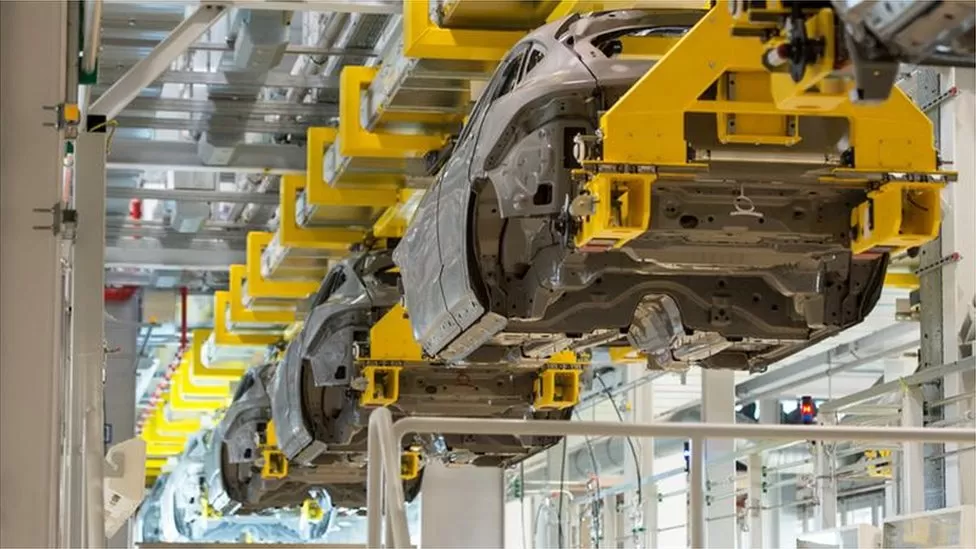Jaguar Land Rover-owner Tata will announce plans to build its flagship electric car battery factory in the UK. People familiar with the matter said the new plant in Somerset would be officially announced on Wednesday. The government is providing subsidies worth hundreds of millions of pounds, sources said. Some in the car industry have described the plant as the most important investment in UK automotive since Nissan came to Britain in the 1980s. The investment could lead to the creation of up to 9,000 jobs around Bridgwater in Somerset. But its significance lies in the boost it will give to the car manufacturing sector as it transitions from petrol and diesel to making electric vehicles.
Batteries typically account for more than half of the value of an electric vehicle, so a reliable supply is expected to be vital for the future of the UK car industry. The government has been criticised for lacking a clear industrial strategy and falling behind the US and EU in attracting investment in low-carbon technologies. Some industry insiders hope that the Tata battery investment will open the door to further battery investments in the UK. The UK currently only has one plant in operation next to Nissan’s Sunderland factory, and one barely on the drawing board in Northumberland. Another proposed battery manufacturer, in the north east of England, Britishvolt, went into administration earlier this year. By contrast the EU has 35 plants open, under construction or planned.

The government has outlined a series of net zero goals, including a ban on the sale of new petrol and diesel cars from 2030. However its most recent five-year programme has been criticised for failing to provide the money and legislation required to meet those goals. The UK also exports a large number of cars, and its overseas markets are committed to the transition to electric vehicles. The new factory in Somerset will initially supply batteries for a new range of electric Jaguar and Land Rover models.
Tata Group, an Indian multinational, did consider a rival site in Spain for the battery plant. Its decision to choose the UK is likely to be viewed as a big win for Britain by the government. However, sources said a significant level of subsidy has been provided, which are likely to be in the form of cash grants, discounts on the cost of energy, and training and research funding. The size of the incentive package has not been disclosed. As well as owning Jaguar Land Rover, Tata has extensive steel interests in the UK including the Port Talbot plant in South Wales and the government is also expected to offer around £300m to subsidise, upgrade, and decarbonise those operations.
A UK government spokesperson said it would not comment on ongoing negotiations with a private company. Parliament’s cross-party Business and Trade Committee is holding an inquiry into the UK’s electric vehicle battery manufacturing sector. Its chairman Darren Jones, said Tata’s decision to site the new plant in the UK was “very welcome” but raised questions over the scale of the subsidies provided. “We will want to reflect, however, on the subsidy package that was required to secure this decision and if this approach is scalable to meet the need for further battery manufacturing sites for other car companies across the UK.
” Those concerns were echoed by the FairCharge group, which represents other companies in the electric vehicle sector. FairCharge’s founder, Quentin Willson, said there was a fear in the industry that Tata’s investment could “sweep up” all available government support. “I truly hope that other companies in the battery, critical minerals, charging and EV supply chains won’t be neglected,” he said. Andy Palmer, former executive at Nissan and Aston Martin – who is now at EV charging firm Pod Point – said the UK needed a strategic industrial strategy to “lift all boats”. “Support must come in all shapes and sizes for businesses of all shapes and sizes,” he said. “One gigafactory doesn’t equal success, it equals part of the puzzle.”
![]()





